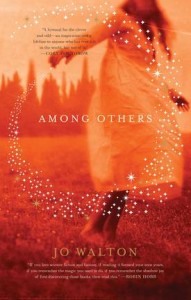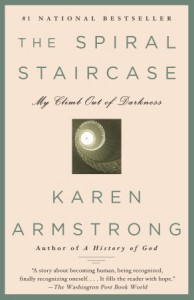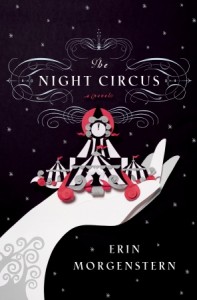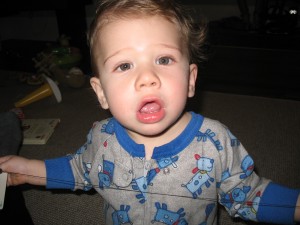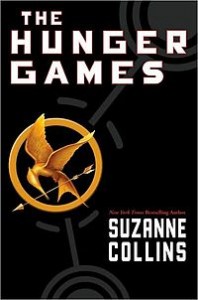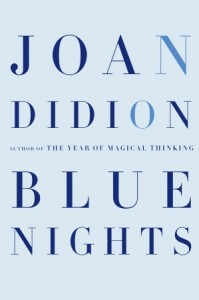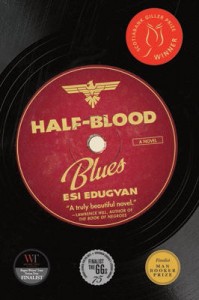 My reading life this year has been defined by my “discovery” of Julian Barnes. I think I’ve read four of his books over the last fourteen or so months, and honestly think he’s one of the finest novelists working in English today. The Sense of an Ending, his Booker-prize winning novella (because it’s really short, come on!), reminded me a little of Ian McEwan’s On Chesil Beach, both because it’s short, but mainly because they both have protagonists whose lives are defined by a fractured relationship that seems to drive an earthquake-sized fissure through their lives.
My reading life this year has been defined by my “discovery” of Julian Barnes. I think I’ve read four of his books over the last fourteen or so months, and honestly think he’s one of the finest novelists working in English today. The Sense of an Ending, his Booker-prize winning novella (because it’s really short, come on!), reminded me a little of Ian McEwan’s On Chesil Beach, both because it’s short, but mainly because they both have protagonists whose lives are defined by a fractured relationship that seems to drive an earthquake-sized fissure through their lives.
Tony’s an average man. Balding. Divorced. Retired. He has a good relationship with his ex-wife and his daughter. He travelled a bit in his youth. He held down a good job. He has a nice little condo. All in all, he has had a happy life. Perhaps not necessarily fulfilling in the way that you imagine, you romanticize, adulthood when you’re in the throes of the high points of your youth. While in school, Tony’s and his friends envelop Adrian into their fold — he’s charming, ridiculously intelligent, and soon becomes a favourite of both the teachers and students alike. He’s a young philosopher who dissects a fellow student’s suicide with a calm, exacting kind of matter reminiscent of some of the great existential minds, and when he goes off to study at Oxford or Cambridge (one of those high profile British universities anyway), it’s not surprising. He has that kind of energy that pulls people towards him, including, Tony’s first serious girlfriend.
Everyone knows memory isn’t anything close to the truth (the heroine of Before I Go To Sleep knows that better than anyone, I think). It’s selective and seductive — keeps the good (and the terrible; hell, don’t we all have those “stop your heart” moments where you look back and feel the utter ruin of a moment?) and reverberates the bad. And as Tony goes backwards, forwards, and in between, to piece together why said ex-girlfriend’s mother has left him not only money in her will but Adrian’s diary (and how did she get it in the first place?), the story slowly unravels into truth. And like the best of novels, like the best of writers, the story, the ending, is not at all what one would expect.
The sense, I think, that the title refers to the many ways that situations can end — death, obviously, break-ups, naturally, but also philosophically, that is, knowing how and when to say good-bye, to bring things to an end. There’s a moment, always, when one can go too far with something, hurt people, get hurt oneself, and Barnes explores this theme brilliantly. The narrator of the book, utterly fallible to human emotions, human mistakes, finally understands the complex nature of the situation, and the revel is everything you expect from a superior novelist. There are no cracks or fissures in this book. No stray words, no false pretences, no extraneous, well, anything. It’s not a lengthy or even as rich a novel as say Arthur and George, but the way it looks at moral questions, the way it builds character and suspense, remains engaging from start to finish. I know, in a way, that perhaps the Booker committee gave him the award as a kind of lifetime achievement situation, but, in the end, when a book is this good, does it really matter?
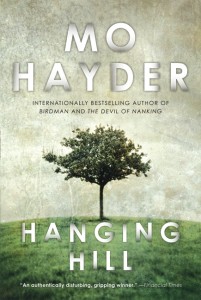 Oh, Mo Hayder. I’ve told anyone who’ll listen that Mo Hayder is my favourite thriller writer. While, yes, sometimes there are gruesome aspects to her novels, but they are just so damn well written that even when the words make me cringe, I’m impressed by them. Hanging Hill is a standalone novel, written outside of her current series, The Walking Man books, and while there are familiar aspects to the story (a tough-as-nails cop; family conflict; great villains), this is one hell of a mystery.
Oh, Mo Hayder. I’ve told anyone who’ll listen that Mo Hayder is my favourite thriller writer. While, yes, sometimes there are gruesome aspects to her novels, but they are just so damn well written that even when the words make me cringe, I’m impressed by them. Hanging Hill is a standalone novel, written outside of her current series, The Walking Man books, and while there are familiar aspects to the story (a tough-as-nails cop; family conflict; great villains), this is one hell of a mystery.